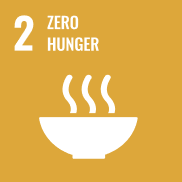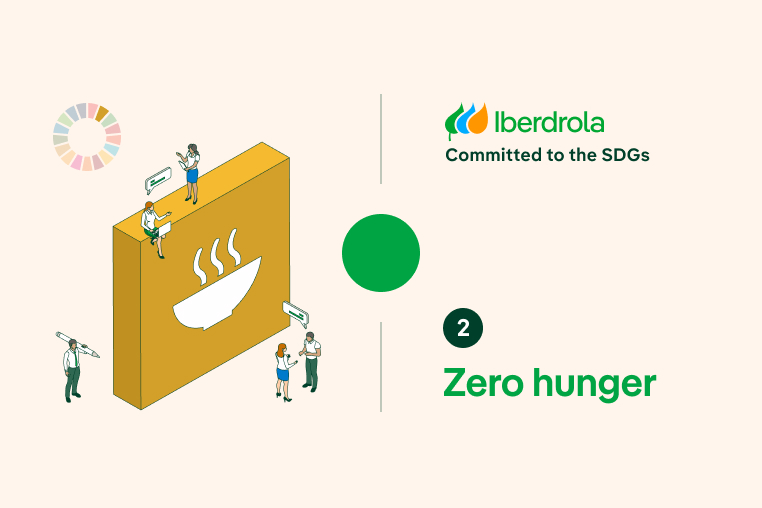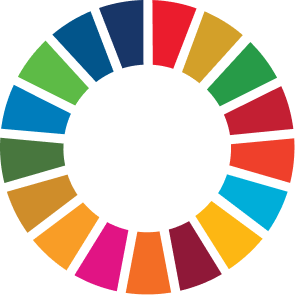SDG 2: Zero hunger
We are helping to combat social exclusion through donations of essential goods
Social action Human rights Integration SDG
Iberdrola encourages its employees to donate food and essential goods. In 2023, 20,495 people participated in volunteering activities, such as supporting soup kitchens to feed families in need. Under our commitment to mitigate the COVID-19 health crisis, 90,000 meals have been prepared for people in vulnerable situations.
Goal 2: Zero hunger. Video voice transcription (Spanish version) [PDF]
Our contribution to SDG 2: Zero hunger
Iberdrola’s goal is to collect voluntary contributions from its employees of basic necessities to help alleviate the situation of social exclusion and poverty in which many people find themselves. In 2023, the company distributed 812,840 menus to vulnerable families. Among its actions and achievements:
![]() To help alleviate the economic crisis, the company has launched food collection and donation campaigns in Spain, the United Kingdom, the United States, Brazil and Mexico, among other countries. Operation Kilo has adapted to a new format in which employee donations have been transformed into food products for vulnerable families.
To help alleviate the economic crisis, the company has launched food collection and donation campaigns in Spain, the United Kingdom, the United States, Brazil and Mexico, among other countries. Operation Kilo has adapted to a new format in which employee donations have been transformed into food products for vulnerable families.
![]() Having promoted volunteering activities to share out food among vulnerable families, soup kitchens, etc.
Having promoted volunteering activities to share out food among vulnerable families, soup kitchens, etc.
What is Sustainable Development Goal 2: Zero hunger?
SDG 2 aims to end world hunger. It focuses on ensuring that all people, especially the poorest and most vulnerable — which includes lactating mothers — have access to safe, nutritious and sufficient food, ending all forms of malnutrition.
Why is it so important to achieve SDG 2: Zero hunger?
Undernourishment and hunger make people less productive and more likely to suffer disease. This prevents them from raising their income and improving their standard of living.
The food and farming industries are vital in eliminating hunger and poverty. Under good, responsible management they could feed the entire planet and generate income, foster development among the rural population and protect our environment.
However, according to the United Nations (UN), one third of the food we produce worldwide goes to waste. That means approximately 1.3 billion tonnes of food gets thrown away every year. The latest report by the FAO estimates that in 2022, between 691 and 783 million people were facing hunger in the world.
Chronic malnutrition or stunted growth increase the risk of children dying from common infections and are also associated with deficient cognitive development. Currently, 148.1 million children under the age of five are affected by this condition, with 28 countries where at least 30% of the child population remains undernourished and stunted.
Malnutrition has decreased in regions such as Central and South Asia, but continues to increase in West Asia and North Africa as well as sub-Saharan Africa, where 22.5 percent still face hunger – a percentage that has increased by 4 percent since 2015.
It is estimated that by 2050 there will be 2 billion more people on the planet, but we will have 25 % less land on which to grow crops. This calls for sustainable food production systems and resilient agricultural practice to end hunger and achieve food safety, better nutrition and more sustainable farming.
Ending hunger and achieving food security has become a major challenge due to climate shocks and plagues of locusts, now causing a crisis in 23 countries, especially in and around eastern Africa. These insects are ravishing crops and devastating farms and are able to devour vast amounts of plants and vegetables.
If small food producers were already at a huge disadvantage, the pandemic has pushed many over the edge. Although their role in global food production is crucial, data show that their productivity is systematically lower than large-scale producers, with their income averaging less than half that of major producers in most countries.
In this situation, ending hunger has become SDG 2 of the UN's 17 Sustainable Development Goals, approved in September 2015 as part of the 2030 Agenda.
Iberdrola aligned with the Sustainable Development Goals
Keys facts for understanding world hunger

-
Global impact Over 700 million people are currently undernourished.
-
Distribution In sub-Saharan Africa, 22.5 per cent suffer from malnutrition. Numbers are also rising in West Asia and North Africa.
-
Population 148.1 million are children under the age of 5.
The 10 countries with the highest percentage of hunger:
- Central African Rep. 60%
- Zambia 45%
- Zimbabwe 44%
- Liberia 43%
- Madagascar 41%
- Rwanda 41%
- Uganda 38%
- U. Rep. of Tanzania 33%
- Sierra Leone 31%
- Ethiopia 28%


Main causes
Lack of food production systems and sustainable agriculture, shortage of aid for the sector, food waste and high level of vulnerability of certain populations to natural disasters and war.

Is there a solution?
Although the figure for malnutrition has improved compared to the 900 million people declared in 2000, we must strive to improve production and cultivation systems and encourage access to resources for women farmers.
Source: FAO (2022) and UN (2022).
SEE INFOGRAPHIC: Keys to understanding World Hunger [PDF] External link, opens in new window.
SDG 2: Zero hunger targets
The specific targets set for 2030 are:
-
To end hunger and ensure equal access by all people to safe, nutritious and sufficient food.
-
To end all forms of malnutrition, which ranges from chronic undernourishment to obesity.
-
To ensure sustainable food production systems and implement resilient agricultural practices that increase productivity and help maintain ecosystems.
-
To double the agricultural productivity and incomes of small-scale food producers, including through secure and equal access to land.
























